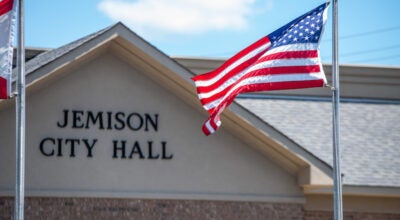Differences of opinion
Published 11:04 pm Friday, May 15, 2009
One of the more heated issues in Chilton County over the years has been the debate over alcohol sales in supermarkets, convenience stores and restaurants.
While the county has remained dry, the city of Clanton was able to hold a vote themselves the right to sell alcohol because the city met the requirements of a piece of state legislation.
After a new bill, sponsored by State Rep. Jimmy Martin (D-Clanton), a countywide referendum is no longer needed to settle the debate. Towns such as Jemison and Thorsby can now settle the issue themselves.
The only problem now, is proponents of alcohol sales in those towns have to get to work.
During the recent session of the Alabama Legislature, lawmakers approved a bill allowing any town in a dry county with at least 1,000 residents the right to organize a wet/dry referendum.
But, one local mayor doesn’t believe his town will see it come to a vote.
“I would be surprised if there were enough signatures on a petition to call for a referendum,” Thorsby Mayor Dearl Hilyer said, referring to the petition requirement of the bill. “It would surprise me even more if there was a referendum and the measure passed.”
Although Hilyer doesn’t believe a referendum will be held or even pass, one of his town’s business owners is confident alcohol sales will be a boost to his business.
“I would guess it would add four to five percent to our overall business,” said P.O. Mizzell, owner of Mizzell’s in Thorsby. “We have a lot of people going to Clanton to buy their beer and do their grocery shopping at the same time. If we were to offer alcohol here, then we could keep those dollars in Thorsby.”
In 2008, the city of Clanton collected $371,048.19 in alcohol-related sales tax. That amount made up just over six percent of the total amount collected in sales taxes.
As for Jemison, city leaders believe approval of alcohol sales could mean an economic boom to the city.
“Our main focus is growing Jemison economically,” Jemison Mayor Eddie Reed said of his support for the approved legislation. “All we wanted was for the residents of our town to have a right to say for themselves if they wanted this.”
Reed said the city had been approached in recent years by restaurants such as Outback and Applebees about possibly locating in Jemison, but decided against it because of the city’s dry status. Reed also said one hotel chain had also shown interest but moved on because of the inability to sell alcohol.
“I am not a drinker, but my main focus is helping grow Jemison, and I believe that this would be good for our businesses and help us attract new business,” Reed said.
Even though Reed said the move would be good for the some city businesses, one in particular has taken a strong stance against the sale of alcohol.
“I will not sell alcohol in this store, nor will we sell alcohol here as long as this family owns this store,” Piggly Wiggly owner LaMerle Hamm said Friday. “I know what alcohol can do and how it affects families.”
In order for a referendum to be called, those in favor of a vote must collect enough signatures on a petition calling for the referendum. The number of signatures needed must equal at least 30 percent of the number who voted in the municipality’s last municipal election.
The original version of the bill would have allowed towns with at least 500 residents to hold a referendum, which would have included Maplesville. But, town leaders asked local legislators to change the legislation, increasing the population requirement, thus removing that possibility.






